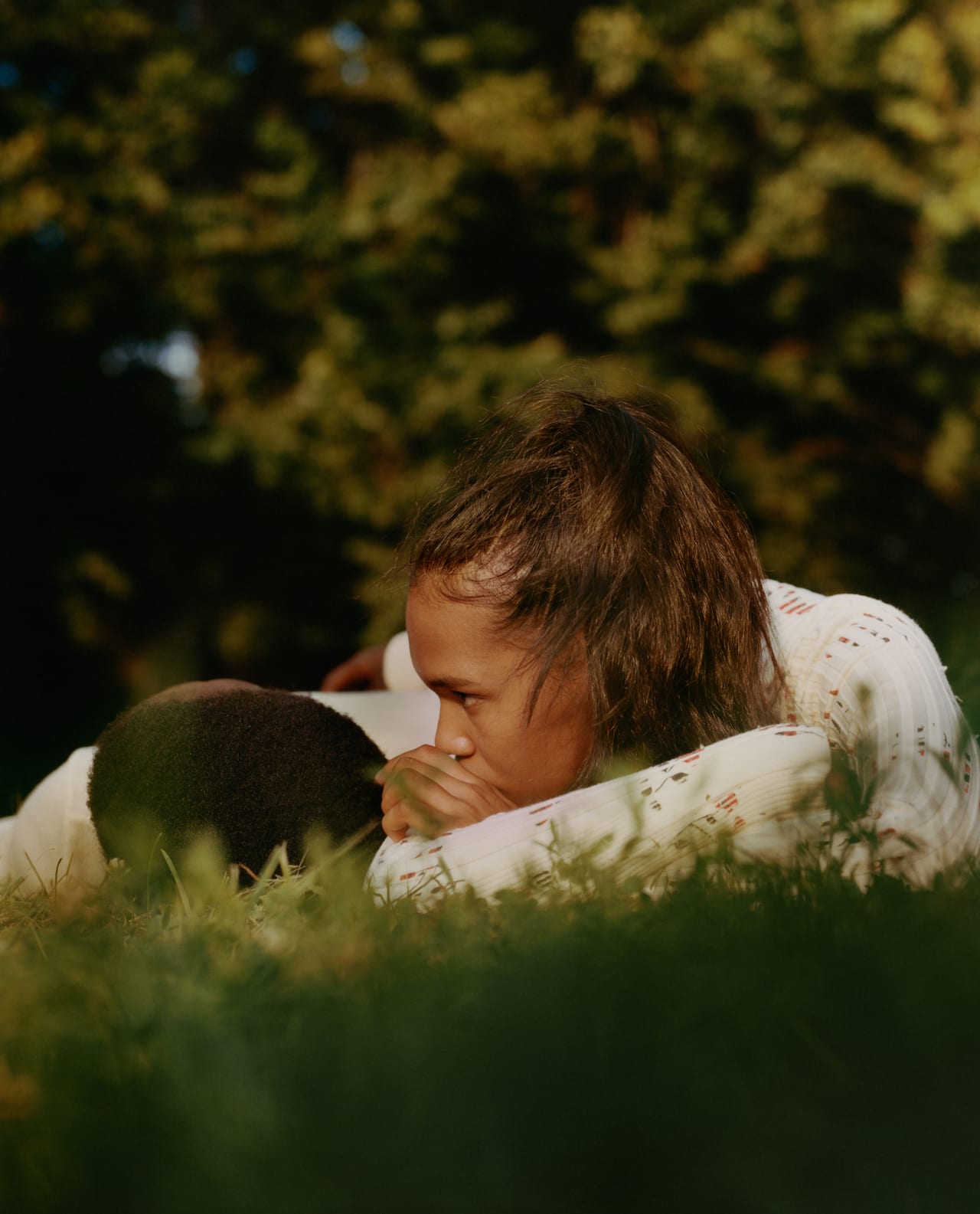Imagine you are in a dream. You are lounging on lush, green grass, gazing up at clouds rolling against the sky. The sun peeks out, soaking you with its golden rays, and the opening riff of Shalamar’s I Can Make You Feel Good ripples through the breeze. As you blink your eyes open, you realise that you are in a utopia — Tyler Mitchell’s utopia — where beautiful Black people love, caress, and play; reclining, entwining, and swinging through space. “It’s a world in which Black folks can appear intimate, in unison with themselves, and in sync with one another,” says Mitchell. “But there’s also a very present counter side of this proposition of feeling good, which is that the images speak of certain freedoms that Black people have been historically denied.”
Mitchell’s debut monograph, I Can Make You Feel Good, is all about immersion. The 25-year-old artist has been working on this body of work for the past four years, and following lauded exhibitions at Amsterdam’s FOAM and New York’s International Centre of Photography (ICP) last year, it is now presented in book-form, crafted with the intention of channeling viewers into Mitchell’s “self-contained utopia”.
“The choices that went in were about making something that felt like my work, and that felt like my voice — intimate, crafted, tactile, lush — all of those words,” says Mitchell. The book is removed from the formal attributes of a photobook, like chronology or captions, thereby accentuating this fictitious world, and in turn the statements that he makes with it: an antidote to the insidious stereotypes that still permeate depictions of Black life in visual culture.
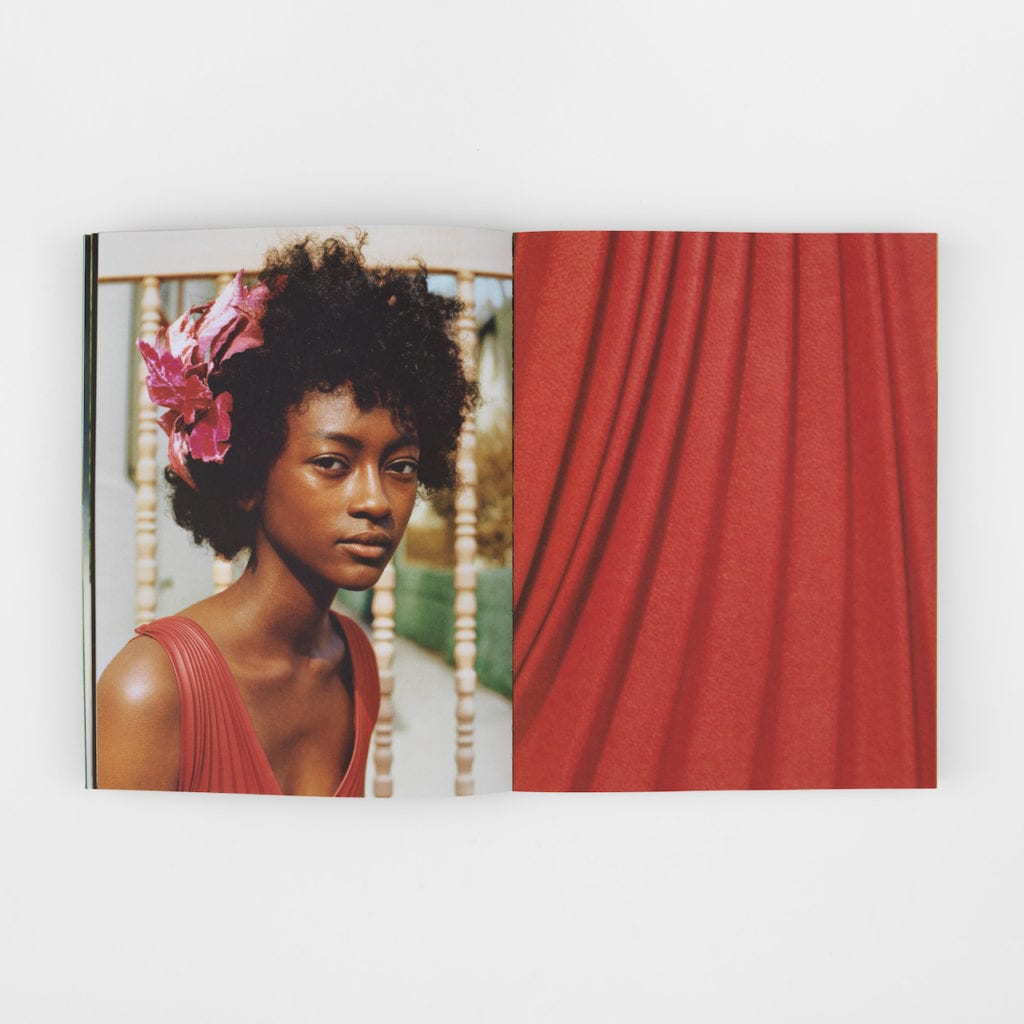
Mitchell’s images are intimate and playful, evoking a certain lyricism, like fragments of written poetry. Every page in the book is printed in full-bleed and colour — landscape images drench its double-page spreads, while portraits are placed next to enlarged parts of texture from within the image, like added vignettes into his imagined narrative.
“It’s really crazy to have an object that is my own, which stands in the same league as the books that I respect, on the shelves of stores that I respect, like Dashwood and MAST,” says Mitchell, a self-confessed “photobook junkie”. The New York-based artist finds inspiration in books by photographers like Ryan McGinley and Viviane Sassen, particularly Umbra and Parasomnia by the latter. “Seeing how someone could present color photography in such a tactile, beautiful, and rich way always spoke to me,” he says.
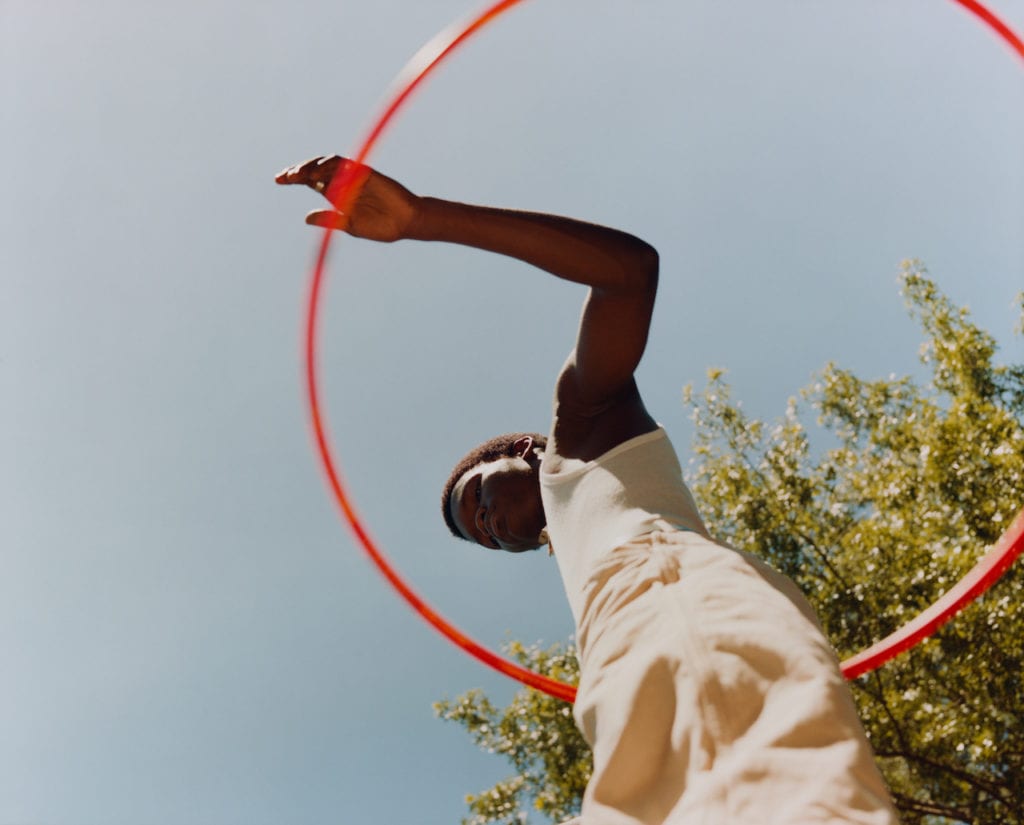
“I aim to visualize what a black utopia looks like or could look like. People say utopia is never achievable but I love photography’s possibility of allowing me to dream and make that dream become very real”
Tyler Mitchell, from his introduction to I Can Make You Feel Good
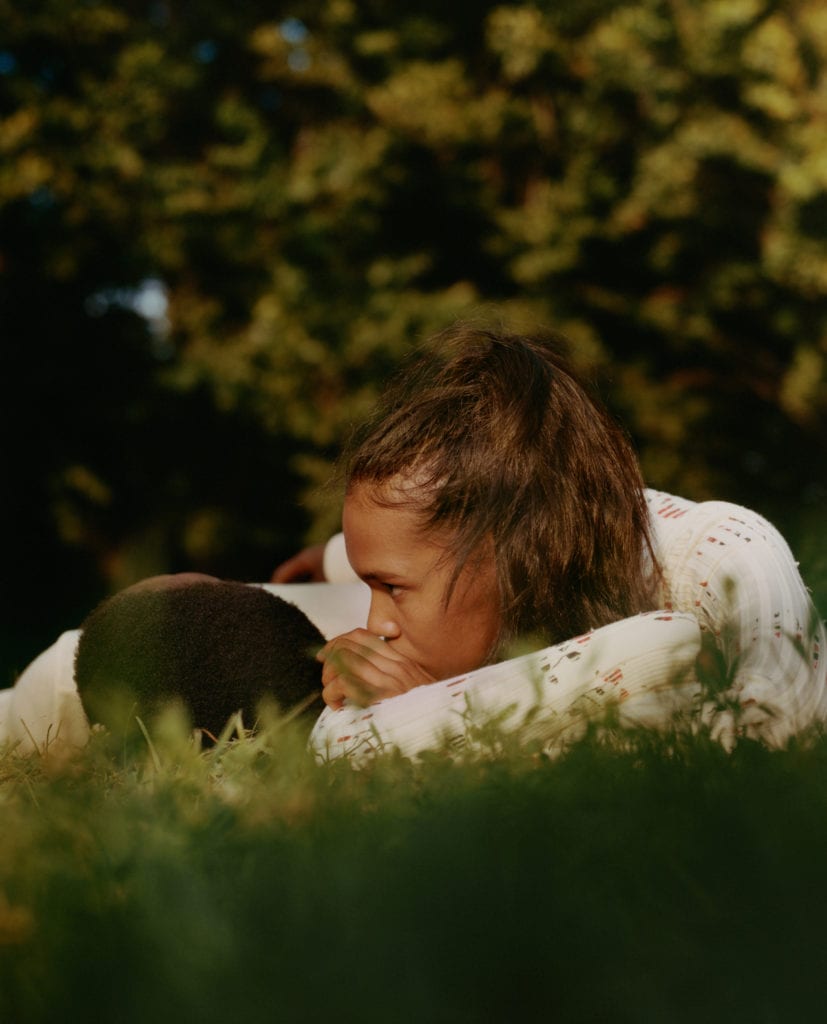
Mitchell was raised in Marietta, a suburb of Atlanta, Georgia. His journey into photography began aged 13 at the skatepark, where, inspired by Spike Jonze’s early skate videos, he started to create his own, using a DSLR he saved up to buy. Fast forward a decade and Mitchell became the first Black photographer, and one of the youngest at 23, to shoot the cover of American Vogue in the entire of its 126-year history. His images of Beyoncé, shot for the magazine’s September issue, were permeated with the sensitivity and quiet optimism that has become his signature, and last summer, one of the images was acquired by the Smithsonian National Portrait Gallery’s permanent collection.
Though Mitchell rose to fame in the realm of fashion photography, his aesthetic and conceptual sensibilities remain constant throughout his practice — from his personal photographs and films, to magazine editorials, and commercial work for clients including JW Anderson, Comme des Garçons, and Mercedes Benz. The images in I Can Make You Feel Good are drawn from all corners of his practice, from film stills to commercial shoots — a cross-disciplinary approach that is in tune with Mitchell’s commitment to collaboration, nurtured in his formative years of working in the tight-knit world of skateboarding.
“Collaboration and dialogue are extremely important to me on set,” says Mitchell, who has always been mindful of the power dynamics at play between a photographer and their ‘subject’, a term he feels “a natural repulsion towards”. “Language proposes that the photographer is the all-seeing eye with all the ideas, and the ‘subject’ has none of these ideas. I reject that, and that’s why I work collaboratively like I do,” he says. “I think a photographer needs to be someone who people actually like being around, and I hope I give that off.”
Mitchell has spent the last four years creating this body of work, and crafting this book feels like a milestone. “I would say this is definitely the end of a chapter,” says Mitchell. “Hopefully the show, depending on where the world goes, will continue to travel around, and the book, or object as I call it, will make its way into people’s lives.”
I Can Make You Feel Good by Tyler Mitchell is published by Prestel Publishing.
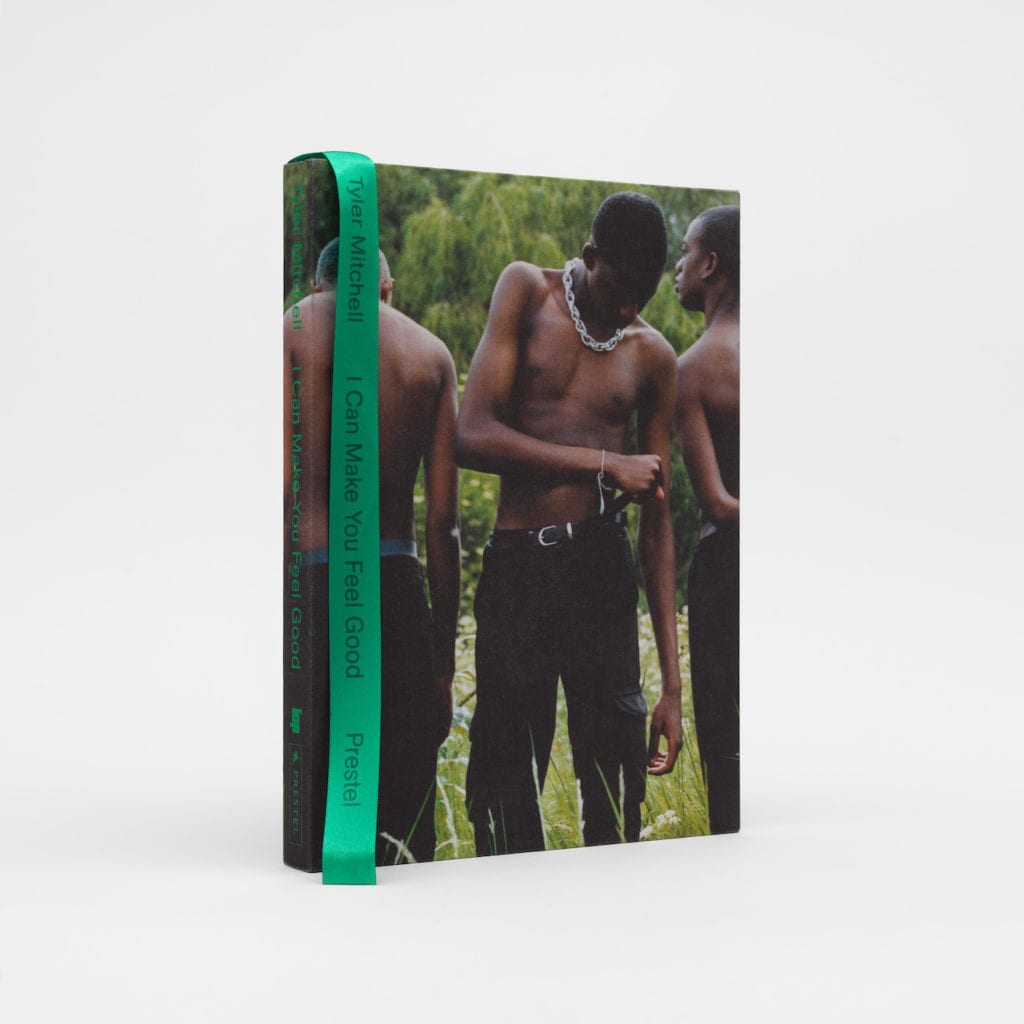
—

